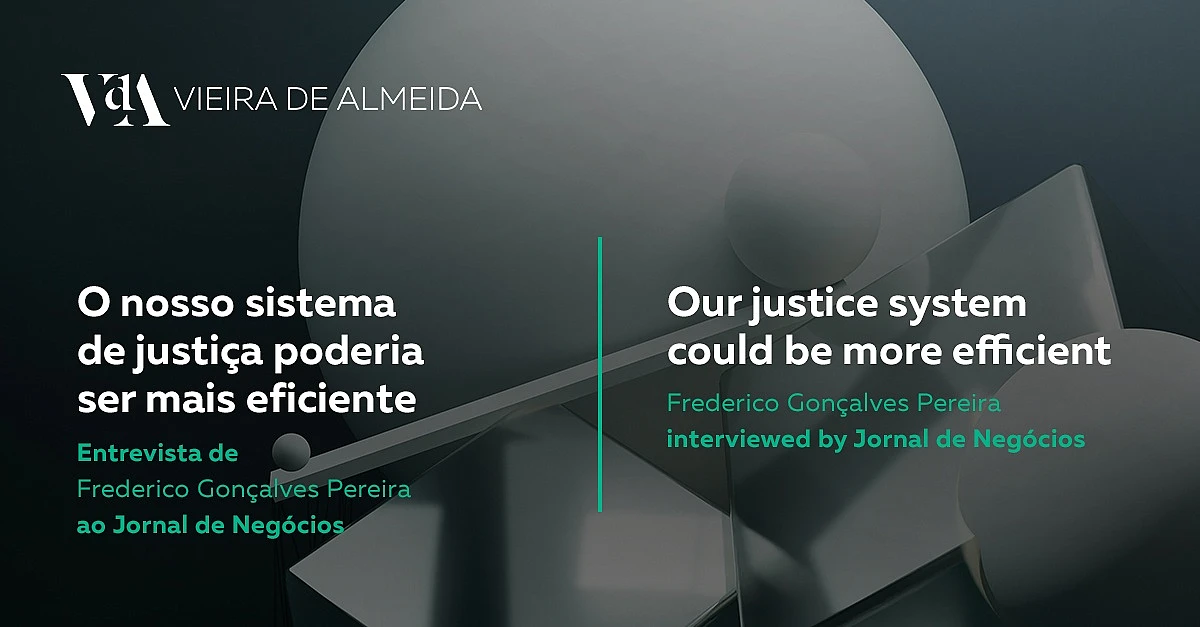Frederico Gonçalves Pereira gave an interview to Jornal de Negócios entitled ‘Our justice system could be more efficient’, in which he discusses the new trends in corporate litigation in Portugal, the growth of litigation in the energy and digital areas, and the inefficiency of the national justice system.
This interview follows the recently published book ‘The Practice of Litigation: Reflections and trends in substantive and procedural law’, coordinated by Frederico Gonçalves Pereira and written by VdA's Disputes & Restructuring group. The lawyer explains that the relevance of this book lies in the opportunity to address legal issues relating to corporate litigation, which ‘is relatively uncommon’. For this reason, ‘we decided with this book to put this discussion into practical perspective and share our experience’, he explains.
During the interview, the VdA lawyer clarifies the new trends in litigation, referring to the significant evolution of this area. ‘Here in Portugal, we have a series of class actions to protect diffuse interests, which is also a European trend. As a rule, actions are brought against companies and this trend is new in business litigation.’
When asked about the influence of a speedy justice system on attracting investment to Portugal, Frederico Gonçalves Pereira emphasised that ‘our justice system could be more efficient and more effective’, however, ‘justice is something that, by definition, implies speed but also careful consideration. There are areas, places and courts where there are constraints that can make the companies task extremely difficult. That's obvious. But it's not a reality in the entire justice system. There are areas of justice that work with some speed, although justice always takes some time.’
The interview also emphasises the importance of a proactive approach by companies to avoid litigation and resolve disputes efficiently. Frederico Gonçalves Pereira noted that both national and international companies are increasingly aware of the need to negotiate and litigate intelligently, showing that companies' legal departments are well prepared for these challenges.
- This interview is available here.
